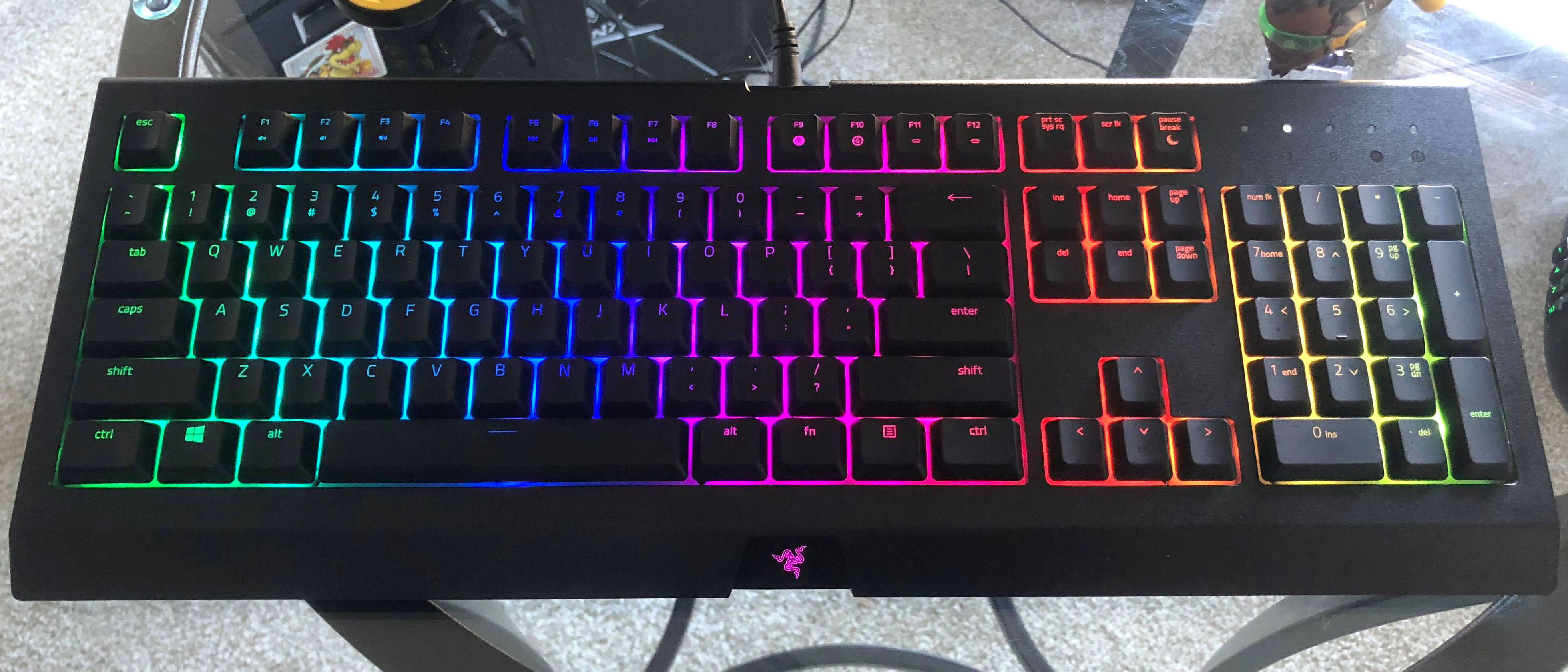TechRadar Verdict
The Razer Cynosa Chroma is a keyboard that's aimed squarely at the budget consumer, offering decent gaming performance and awesome RGB lighting at a low price.
Pros
- +
Inexpensive
- +
Amazing RGB implementation
- +
Low-profile build
Cons
- -
Membrane switches
- -
No dedicated macro keys
Why you can trust TechRadar
Anyone who's at all familiar with gaming hardware knows Razer’s name – they’re truly ubiquitous. With the Razer Cynosa Chroma, Razer has delivered an entry-level membrane switch gaming keyboard that fully delivers on the RGB lighting that gamers crave and is one of the first to be spill-resistant.
Over the years, Razer has essentially created the blueprint for what gaming keyboards look like today, and while a lot of its higher-end boards focus on having extra programmable keys and mechanical key switches, the Razer Cynosa Chroma strips things back a little bit.
Priced at $59.99 (£64.99, AU$99.95), the Razer Cynosa Chroma is an affordable – and beautiful – gaming keyboard that’s free of a lot of the features that might turn newcomers off. It might not feature mechanical key switches, but its unique mesh switches feel smooth while still maintaining the actuation and anti-ghosting that gaming keyboards require.

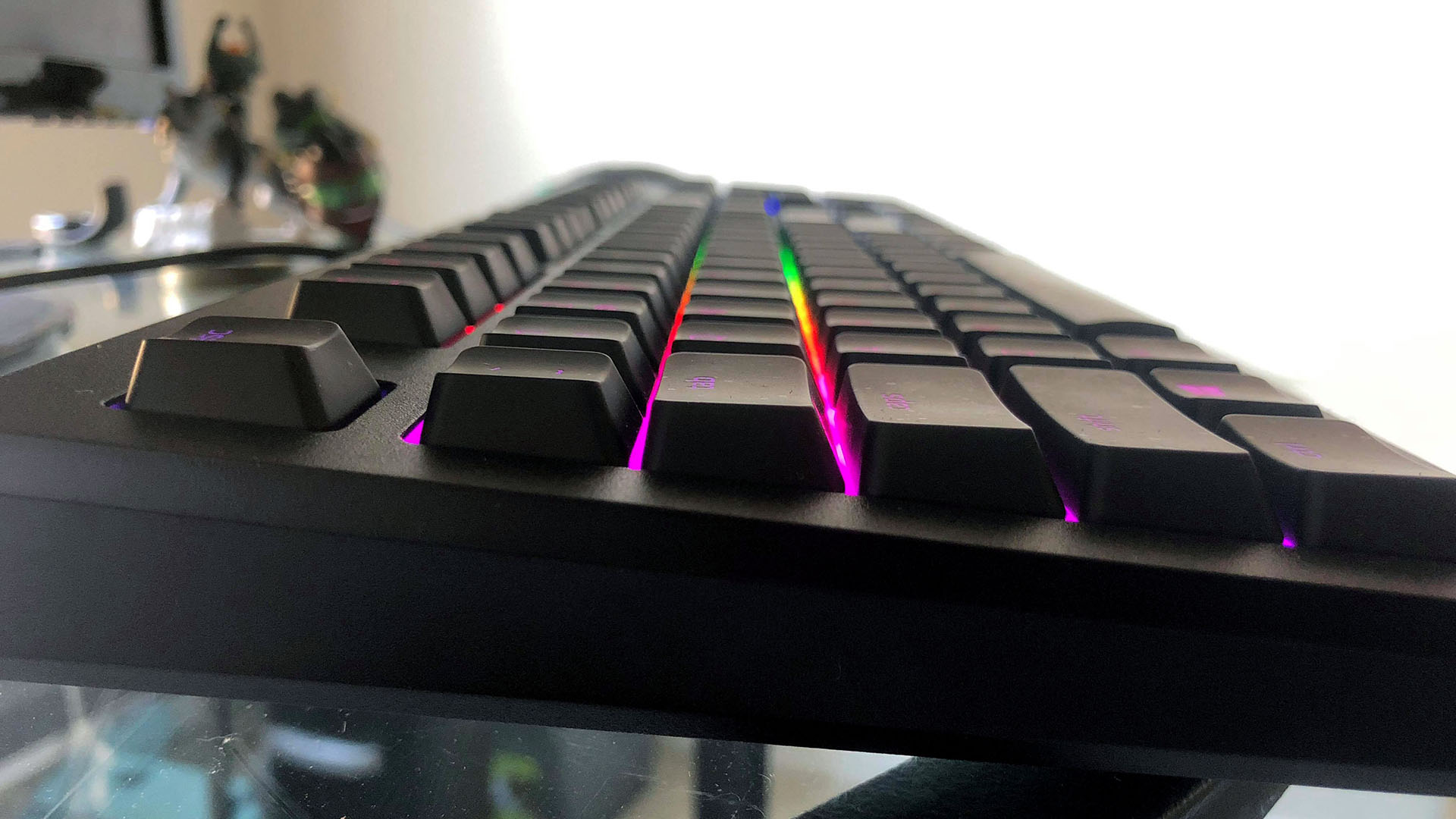
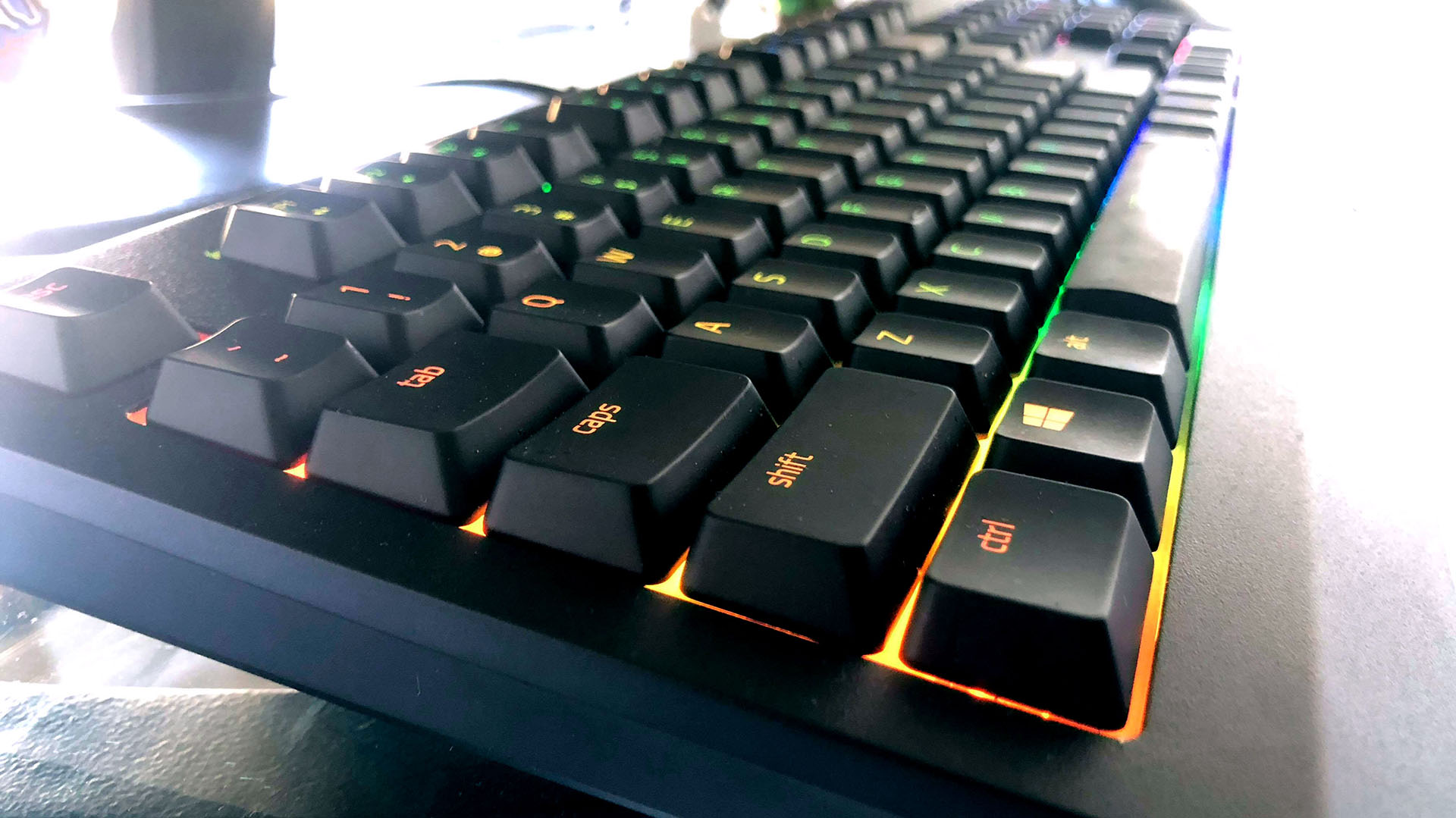
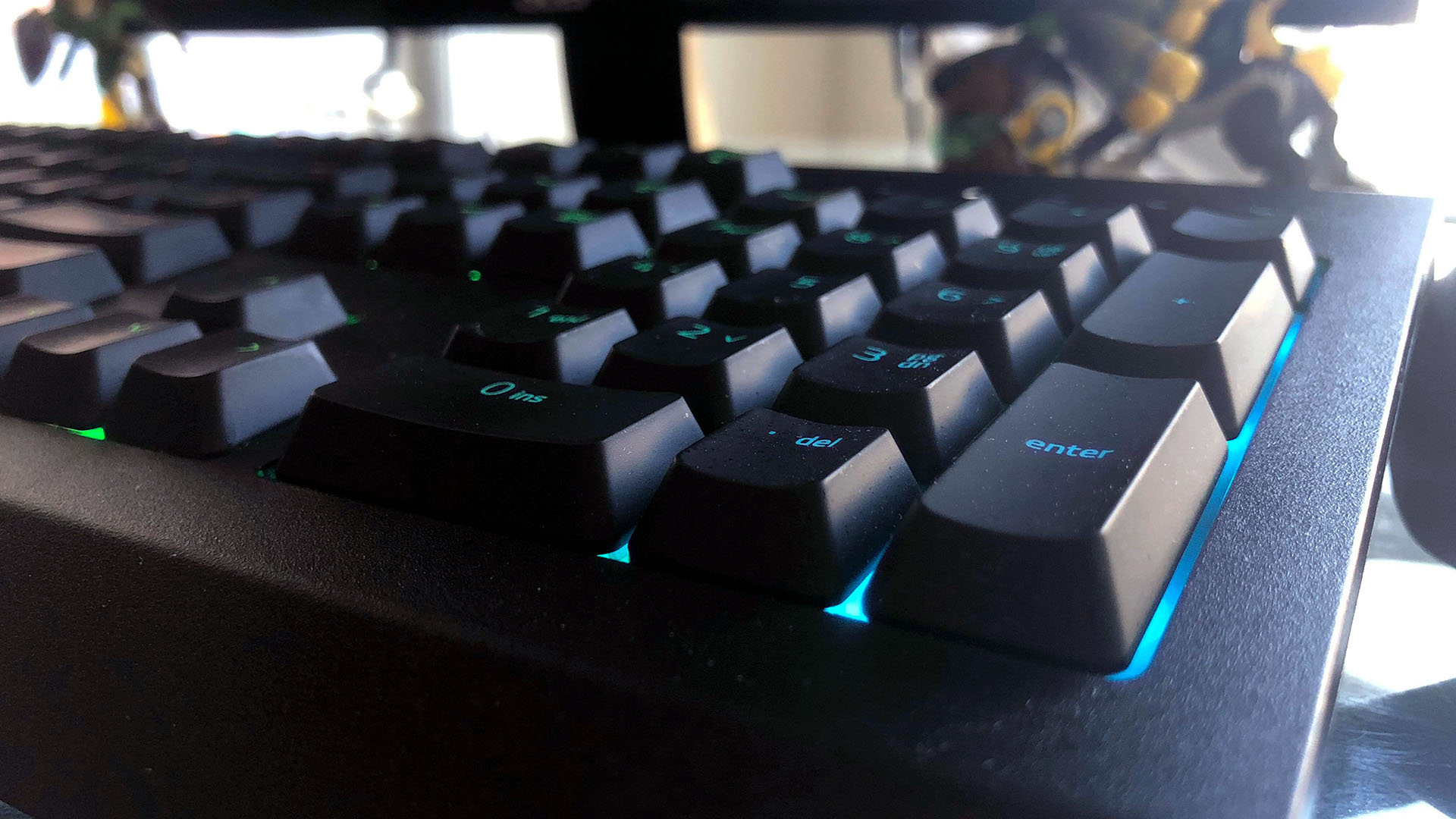
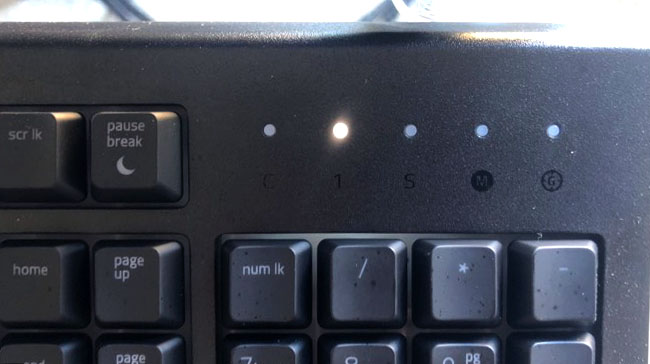
Design
Like all of the best gaming keyboards, the Razer Cynosa Chroma embraces the modern RGB aesthetic, and is fully capable of lighting up your desk like a Christmas tree.
It shouldn’t surprise anyone who's familiar with Razer or its products that the Razer Cynosa Chroma boasts an extremely slick RGB implementation that features 104 individually customizable backlit keys powered by Razer’s proprietary Chroma technology. What’s more, if you were to get the $79 (£79, AU$139) Cynosa Chroma Pro, the keyboard comes with even more customizable underglow lighting).
The RGB lighting here is controlled by Razer’s fantastic Synapse software that seems to get better every time we use it. Through this software, you’ll be able to customize the lighting in whichever way your little heart desires. It’s extremely deep and satisfying.
This keyboard lacks any kind of extra macro keys or media controls. And while some people might find these omissions to be a deal-breaker, for the asking price, we weren’t really expecting all the bells and whistles.
Sign up for breaking news, reviews, opinion, top tech deals, and more.
And, unlike a lot of full gaming keyboards out there, the Razer Cynosa Chroma is compact enough to not take up a lot of desk real estate.
If you’re looking for a gaming keyboard that doesn’t really have that gamer ‘look’ you’re in luck here. The subdued black coloration, lack of garish logos and the option to turn off (or down) the RGB lighting can help this keyboard blend into any office.
It’s also extremely durable, and shows no signs of flexing even when we actively tried to make it flex, and because it’s essentially a membrane keyboard designed to be resistant to spills. So if you’re the type that always spills Mountain Dew while trying to get that top spot on the leaderboards, the Razer Cynosa Chroma should last longer than a comparable mechanical board.
The design of the board is subdued, and doesn’t offer many of extra features, but ultimately, it succeeds at what it’s trying to do.

Performance
Aesthetics and RGB lighting are fun and all, but what makes or breaks any gaming keyboard is its performance in, well, games.
This is where the lack of mechanical switches becomes the Razer Cynosa Chroma’s biggest and most glaring drawback. While this keyboard is great for general use and typing, it begins to show some cracks while gaming. The keys are responsive enough, and the key travel is a lot deeper than most other membrane boards, but you’re simply not going to get the same quick response time as even an entry-level mechanical keyboard.
And while it features 10-key rollover anti-ghosting, it’s a far cry from the n-key tech that some higher-end keyboards feature, and some extremely high-intensity gaming sessions might suffer because of it.
While getting ready for this review, we put this keyboard through its paces in a few matches of Overwatch, and it was a comfortable and reliable keyboard to play a few rounds on. However, this reviewer is used to the tactile clickiness and responsive actuation of Cherry MX Reds. We definitely noticed the difference here – despite the Razer Cynosa Chroma’s impressive 1ms polling rate.
One of the most positive aspects of the membrane switches on this board, however, is the noise – or lack thereof. This keyboard is going to be a huge hit with anyone who likes to game late at night, because unlike its mechanical brethren, the Cynosa Chroma makes little to no noise, while still providing a tactile experience.
And while the Cynosa Chroma lacks any dedicated macro buttons, each key on the keyboard can be programmed however you see fit.
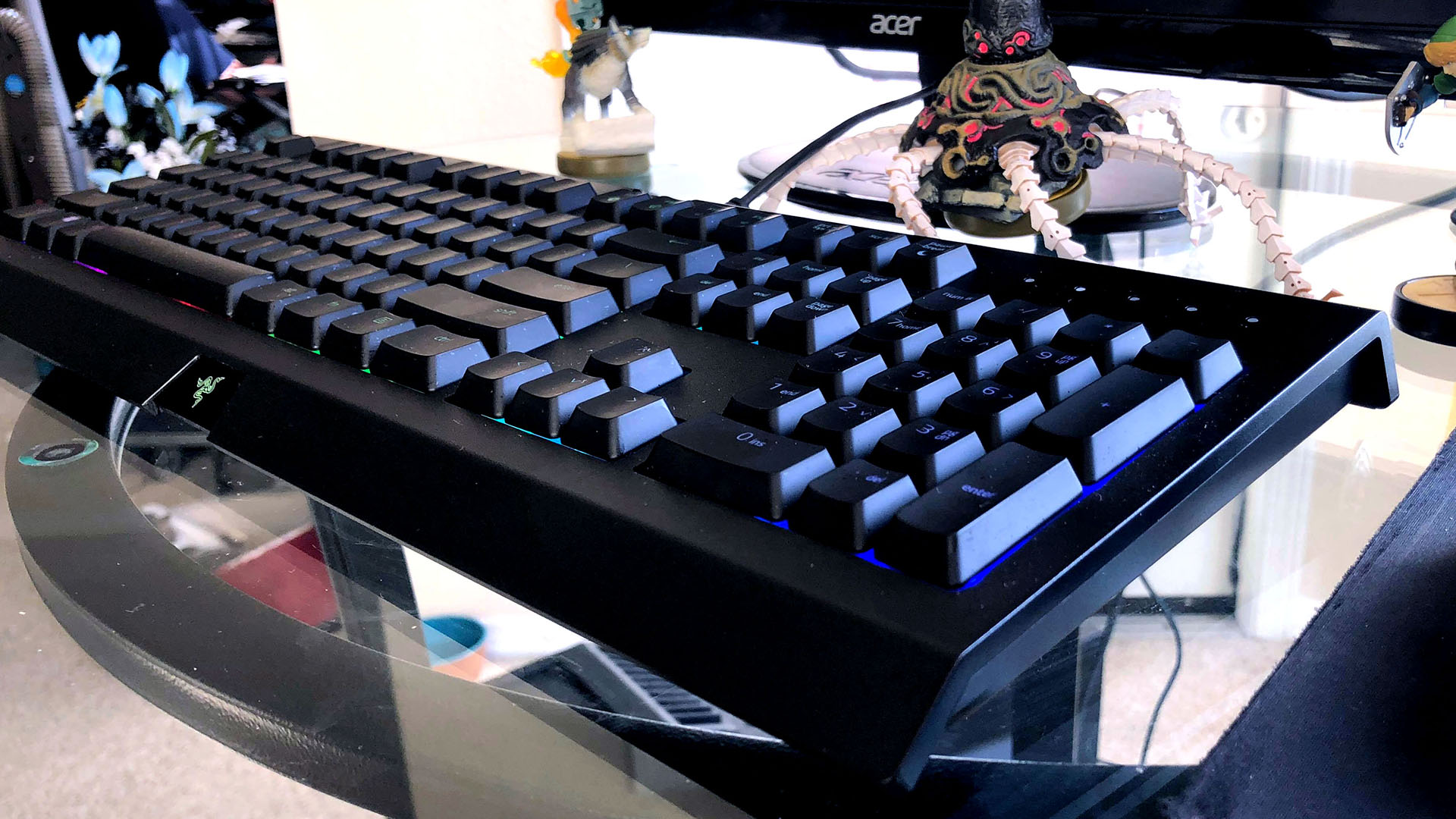
Final verdict
For the price, you’ll have a hard time finding a keyboard that performs this well while still being able to offer fully customizable keys and RGB lighting. Combined with the performance of the mesh-membrane keys, the Razer Cynosa Chroma has a low-profile, spill-resistant design that will make it welcome on any gamer’s desk, regardless of how much or how little they’re into ‘gamer aesthetic’.
The only real drawback with this board is that it has mesh-membrane key switches. For someone who’s just getting into PC gaming, they’ll be hard to notice; however, anyone who has experience with a mechanical board will notice right away. Your mileage will vary.
The only thing that holds this keyboard back from an all-out recommendation is the lack of mechanical switches, but let’s be real: this keyboard isn’t aimed at the hardcore gamer with a closet full of peripherals, and at $59.99 (£64.99, AU$99.95) you’ll be hard pressed to find a better keyboard.
- Check out our Razer promo codes to get the best deal on your next purchase.

Jacqueline Thomas (Twitter) is TechRadar's former computing editor and components queen. She is fat, queer, and extremely online, and is currently the Hardware and Buying Guides Editor for IGN.
